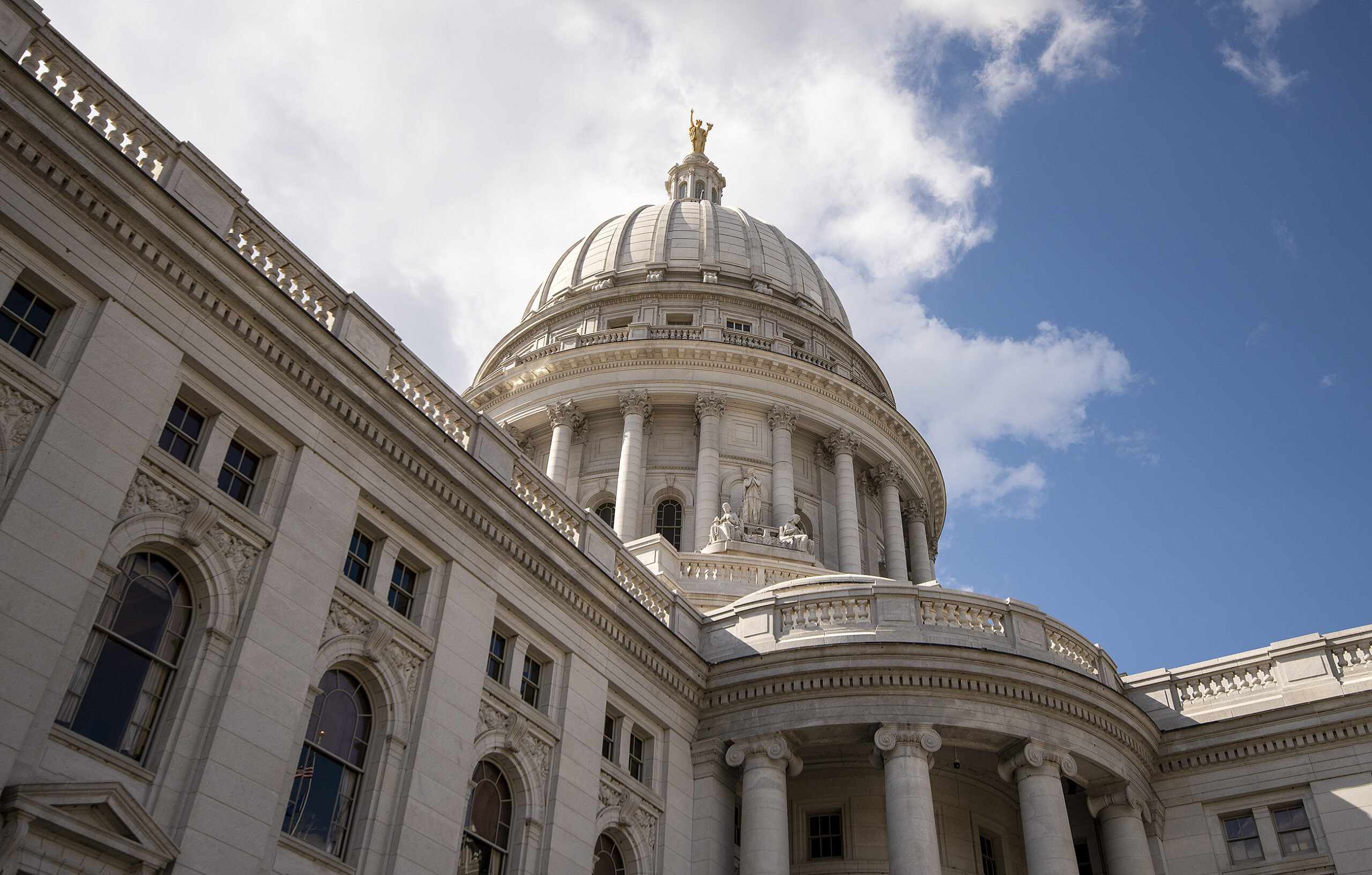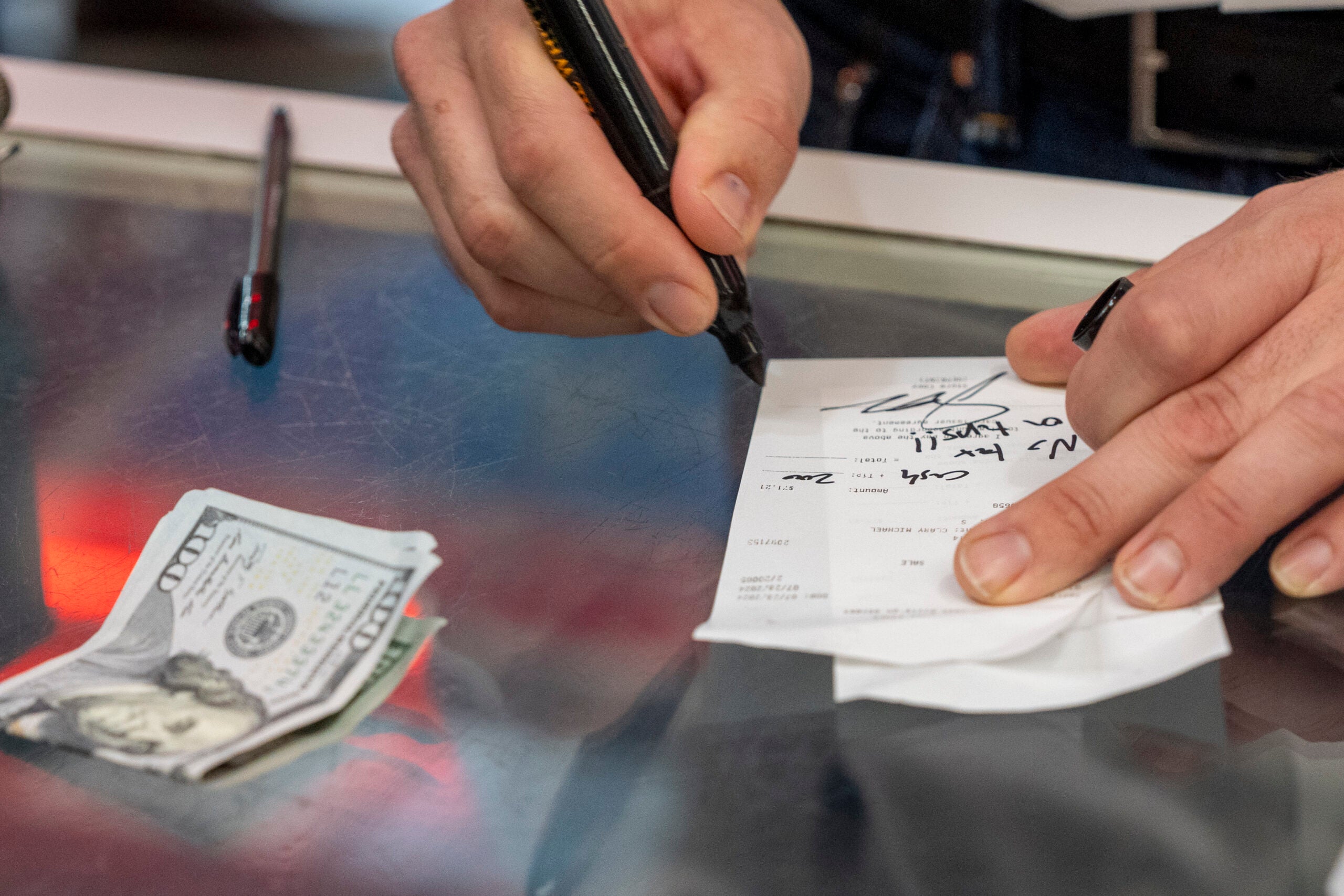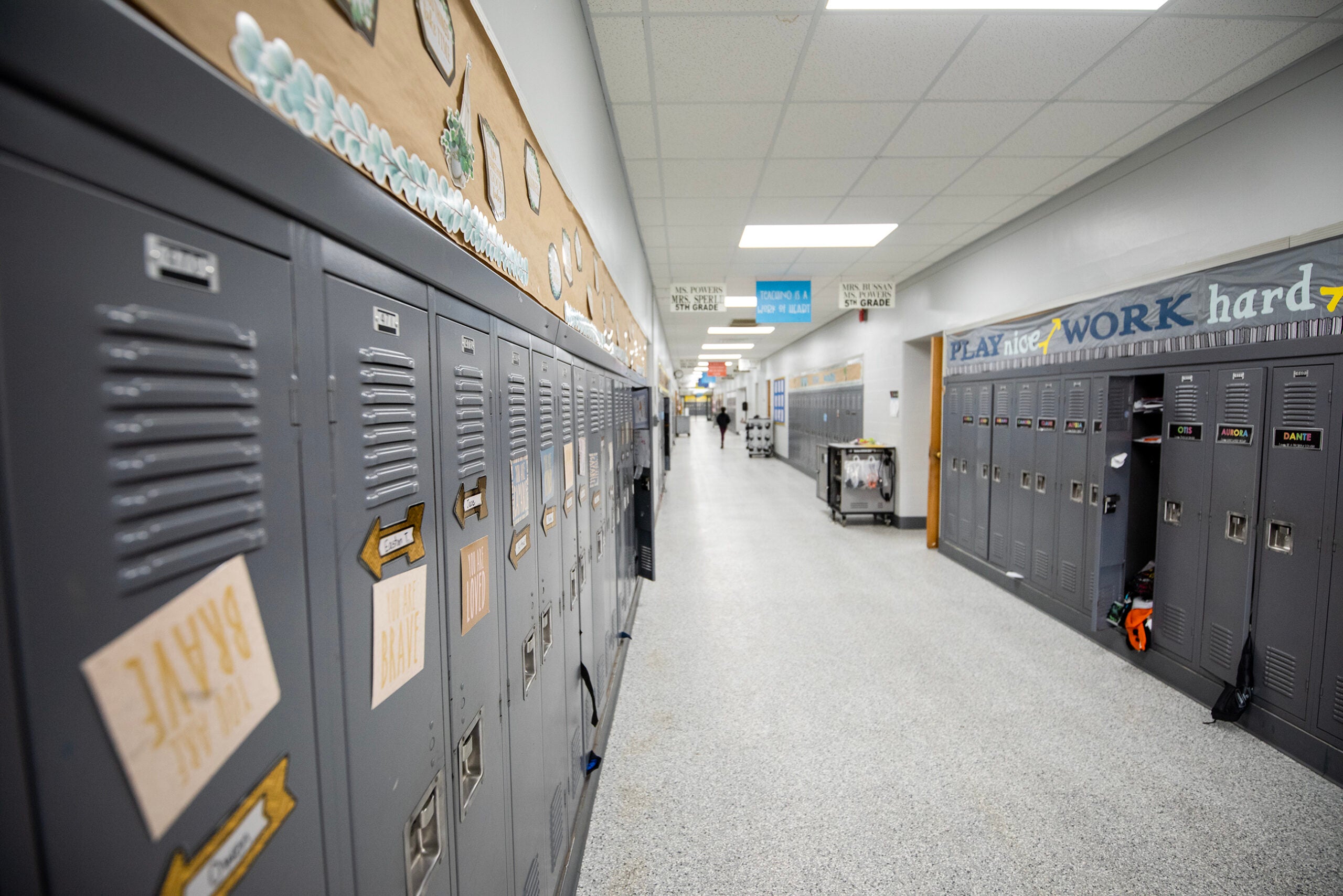Wisconsin’s next budget will likely start with a record surplus, but under the plan introduced by Gov. Tony Evers, it could end with a record imbalance.
And while Republicans have yet to introduce an alternative to the governor’s plan, a tax cut backed by one GOP leader could lead to an even greater structural deficit.
A report released this week by the Wisconsin Policy Forum analyzed all aspects of the budget Evers introduced in February. That plan spends a projected $7.1 billion surplus on a long list of priorities, including public schools, local governments, broadband, paid family leave and improvements to the Milwaukee Brewers’ stadium.
News with a little more humanity
WPR’s “Wisconsin Today” newsletter keeps you connected to the state you love without feeling overwhelmed. No paywall. No agenda. No corporate filter.
To accomplish those goals, Evers would spend roughly $48 million in the state’s general fund, which is like the state government’s checking account, and gets its revenue from Wisconsin’s income, sales and corporate taxes among other sources.
But under Evers’ proposal, spending in the next budget would exceed revenues by nearly $5.2 billion in 2024 and $1.3 billion in 2025.
“Under the governor’s proposal, spending would exceed revenues to a greater degree than we’ve ever seen,” said Jason Stein, research director for the Wisconsin Policy Forum.
Stein said some of that is to be expected in a budget with record reserves fueled in large part by one-time money. Some of Evers’ proposals, like his $750 million in broadband grants or the $243 million set aside for paid family leave, would be one-time expenses, meaning the state would not have to figure out how to pay for them in future years.
Other expenses, like the funding Evers wants for schools or local governments, would be ongoing, meaning future governors and lawmakers would have to figure out how to pay for them.
Stein said that when budget times are good — like they are now — it can be hard to imagine the state being short on money in the future.
“But the reality is, when you look back over time, some of the best state budgets have been followed by some of the worst,” Stein said. “I’m not saying that’s what’s going to happen now, or that the state can’t afford to make some investments, because it certainly can afford to do those things. All we’re saying is that it’s worth thinking about the troubles we’ve had in the past. Because they were pretty troublesome, and it would be good to avoid them.”
Evers’ budget would add $500 million to the state’s rainy day fund, bringing its balance to more than $2.2 billion. But it would spend down the state’s general fund from $7.1 billion to about $630 million by the end of the budget cycle in 2025.
While Republicans have promised to pare down the governor’s budget, Stein said one proposal offered by a top GOP leader could leave the state with an even larger structural imbalance.
The flat tax proposed by Senate Majority Leader Devin LeMahieu, R-Oostburg, would set a single tax rate for all taxpayers, regardless of income. By the time it’s phased in, it would cost state government roughly $5 billion per year in lost revenue.
“The problem would likely be worse there,” Stein said. “Because the flat tax is an extremely large tax decrease. And if you pair that with even modest spending to continue current services, you find yourself in a pretty difficult spot there as well.”
The Republican co-chairs of the Legislature’s budget committee said recently that while they support the idea of a flat tax, it’s unlikely to be included in budget lawmakers pass this year. The budget panel will likely start voting on pieces of the budget in May.
Wisconsin Public Radio, © Copyright 2025, Board of Regents of the University of Wisconsin System and Wisconsin Educational Communications Board.






